Star Trek: Lower Decks and Discovery have ruined the original series for me
Sci-fi owes a lot to classic Star Trek, but some of it aged quite poorly, and the new shows only served to highlight that to us.
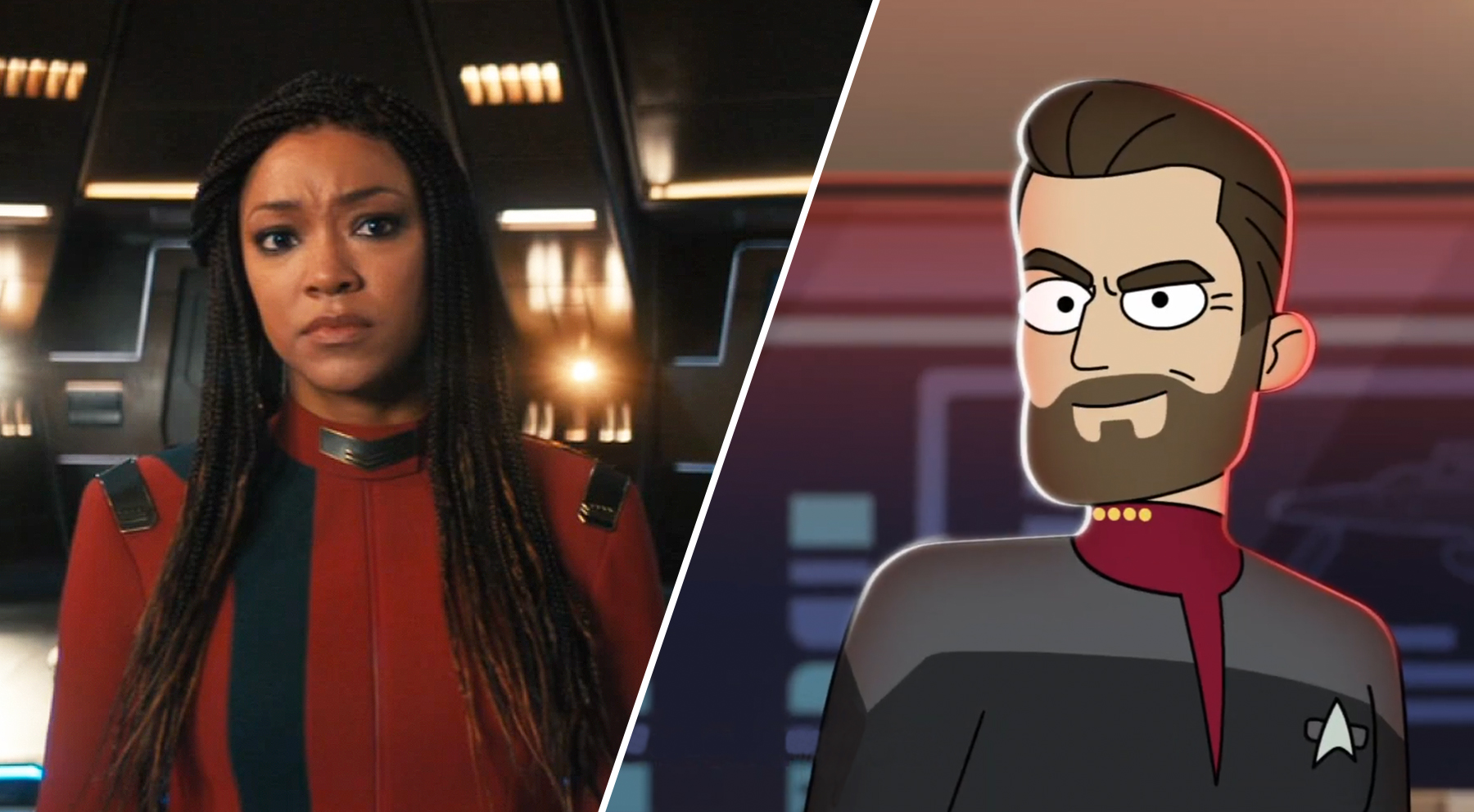
Star Trek is a beloved show for many, and with good reason. As a franchise that’s graced our screens for over 50 years now, the impact of Gene Roddenberry’s creation on popular culture and sci-fi can’t be overstated.
Even now, Star Trek fever shows no sign of abating, with five ongoing TV series currently releasing to our screens. There’s Discovery, soon entering its fifth season; Patrick Stewart reprising his role from The Next Generation for Star Trek: Picard; Discovery spin-off Strange New Worlds; the animated and very funny Amazon series Lower Decks; and the Nickelodeon series Prodigy for kids. And that’s all alongside a long and illustrious history of past series and films in the Star Trek universe still available to watch.
It’s impossible, of course, for such a long-running media franchise to stay consistent in every way – and for those of us who (like me) became ‘Trekkies’ relatively recently, this is deeply apparent when returning to older series.
This will be of no surprise to fans who’ve stuck with the show from its 60s launch, or some time near it, but there are plenty of people who came on halfway, or only with the latest ongoing programming in the age of streaming, who may be surprised by the respective social norms of Star Trek’s earliest iterations.
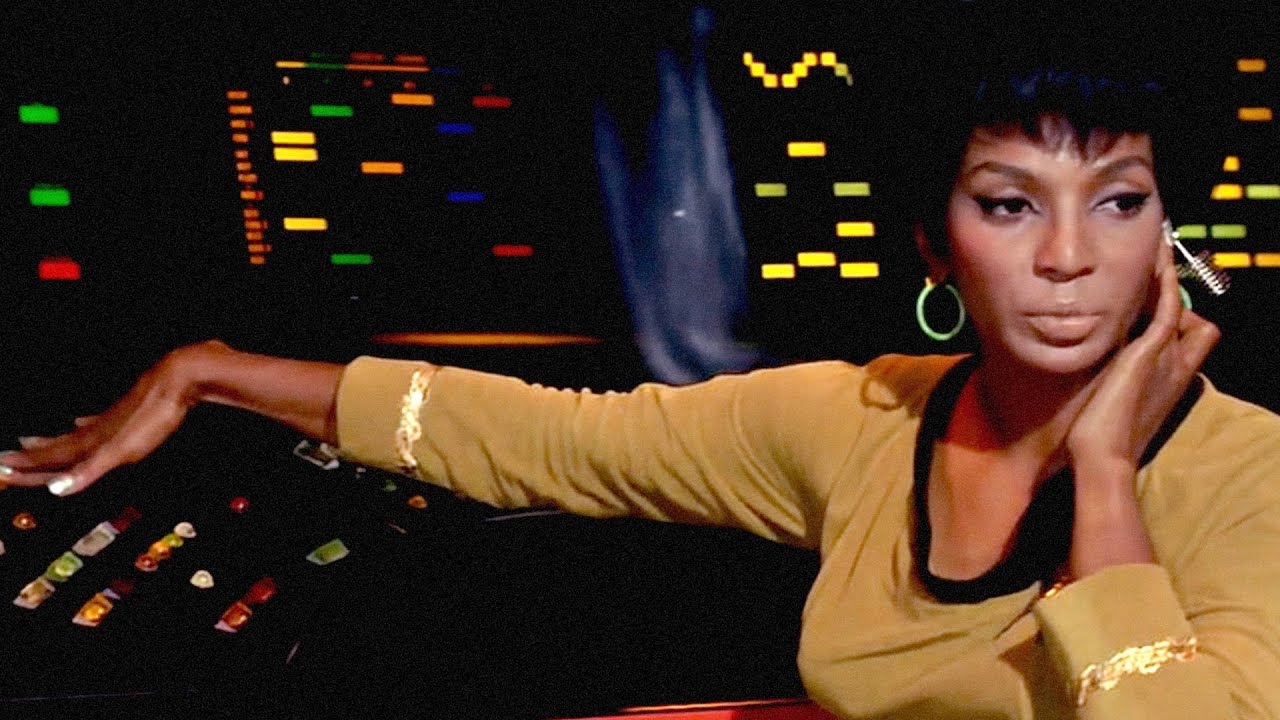
Star Trek has long been progressive in many ways. The Original Series featured actors of various ethnicities in roles that largely weren’t available for non-white actors at the time. We saw Nichelle Nichols in the role of Lieutenant Uhura, the Starship Enterprise’s Communications Officer – who stuck with the role because of encouragement from Martin Luther King Jr., a self-professed fan of the show and its commitment to visibility for people of color.
Gene Roddenberry envisioned a time in the future when humanity had mastered interstellar travel – with the corresponding social progress that came with it, when divisions of race and gender among humanity had been transcended (even if alien races were another matter).
Paramount Plus: Get 7-day free trial, then from $4.99 per month
Watch all the Star Trek content in the Alpha Quadrant, from Star Trek: TOS through to Lower Decks and Strange New Worlds on Paramount Plus.
Even so, social norms of the time plague depictions of women in the show, frequently written to be rescued, comforted or ogled by higher-ranking men. In the infamous pilot episode for The Original Series, ‘The Cage’, Captain Pike audibly gasps in shock at seeing a woman on the bridge, saying he’ll “never get used to” the sight.
Breaking space news, the latest updates on rocket launches, skywatching events and more!
In the same episode, a crash survivor with lasting injuries decides to live in an illusion of her own beauty in an alien prison, rather than go out into the world with visible scarring and deformities – while other women on the crew are rounded up as possible ‘mates’ for their kidnapped captain. Seductive women widely appear as aliens in disguise, or secretly hideous/unlovable creatures hiding underneath a conventionally attractive sheen.
While the best Star Trek: The Original Series episodes still have a lot to offer, a lot of the shows low points are difficult to watch in the modern day.
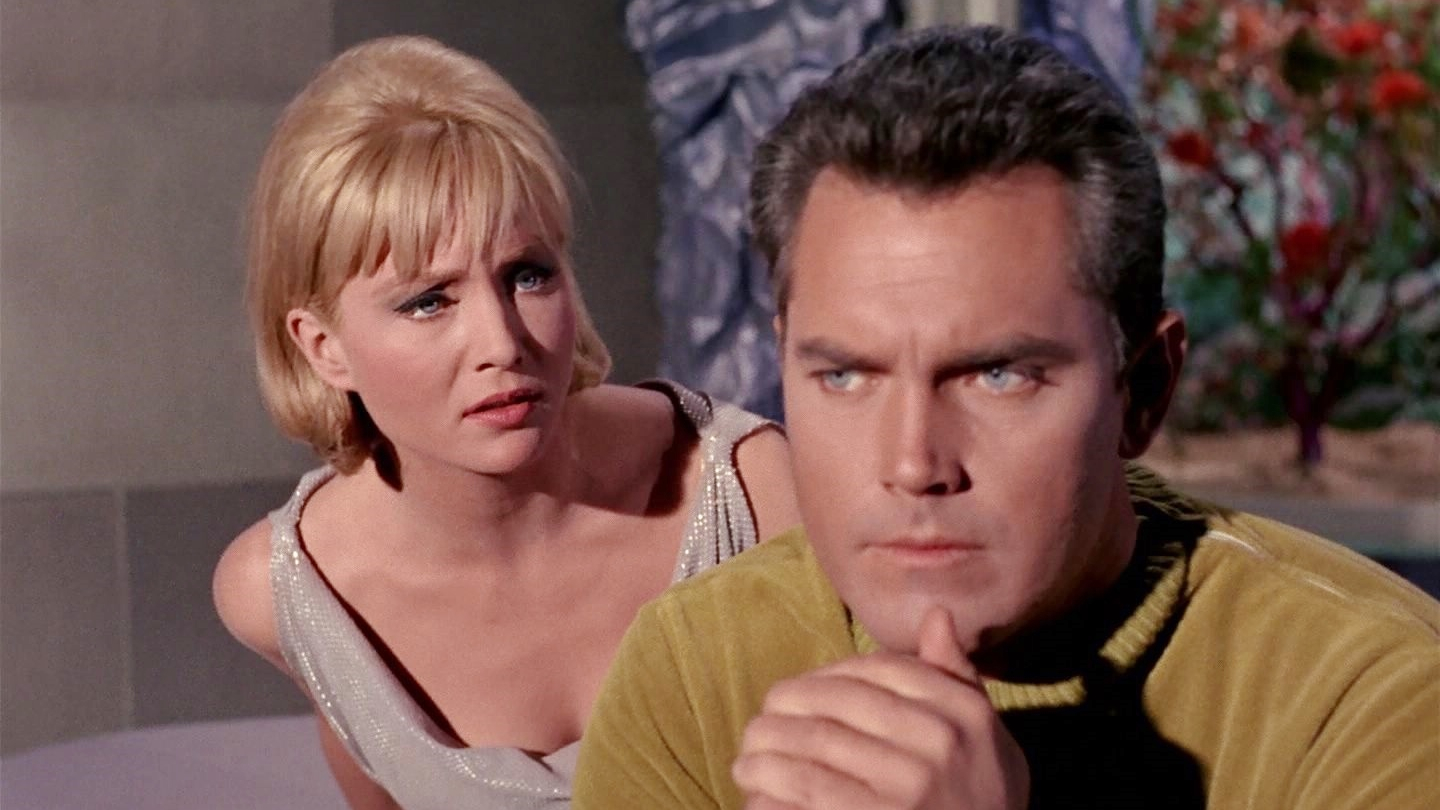
Decades later, the opening episodes of Star Trek: Voyager conflate galactic travel with a sense of unfettered sexual exploration, nonetheless centering the exploits of young womanizers. Crew members trade locker room banter about the unique quantity of sexual organs on past alien conquests, or gape open-mouthed at nude table dancers in blue bodypaint. While there may be equality on Earth by this point, a lens that fetishizes ‘exotic’ bodies is still in full effect.
The underlying horniness of these series is brilliantly lampooned in a more recent Star Trek export, Lower Decks – the animated series on Amazon Prime Video, starring Tawny Newsome and The Boys’ Jack McQuaid.
Lower Decks has the hallmarks of more modern Trek programming, while playfully nodding to more problematic themes of earlier shows. Here, aliens try to seduce naïve crew members in order to lay eggs in their throat, and a simulated training exercise called ‘Naked Time’ sees the entire crew taken over by unstoppable pheromones, leading to a ship-wide orgy. It’s a perfect example of modern series finding a way to lovingly re-canonize and recontextualize issues with the earlier series, with the same kind of send-up that Lower Decks gives to shallow racial stereotypes around Ferengi, or evil parallel universes full of goatees.
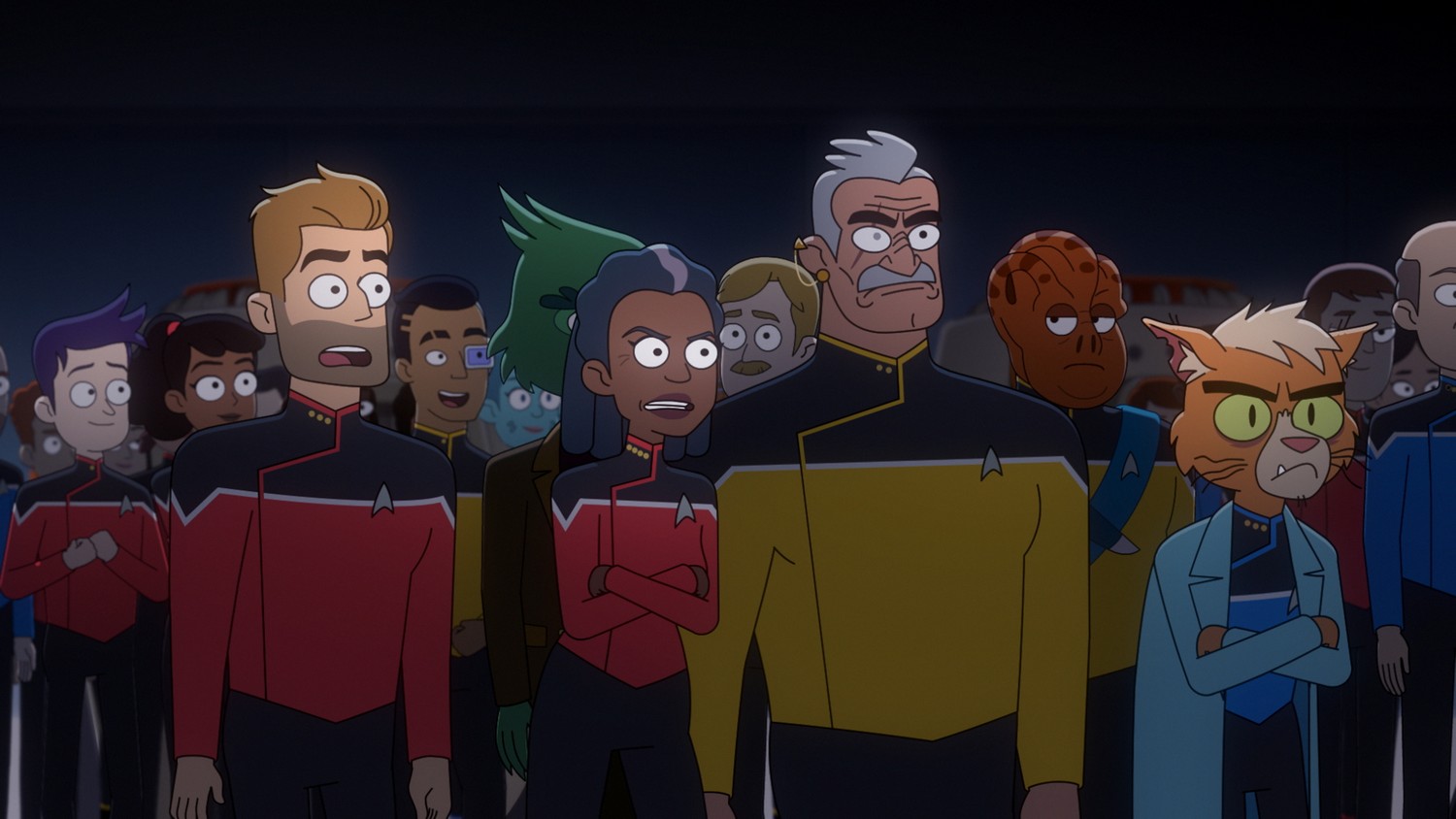
Star Trek: Discovery, which premiered on CBS All Access (now Paramount+) back in 2017, was my primary way into the Trek universe. Starring The Walking Dead’s Sonequa Martin Green in the lead role – who absolutely carries the show through the highs and lows of its difficult development and changing showrunners – it envisages a galactic future where women of color are not only present, but centered, and in charge.
Both Discovery and Lower Decks focus on mother-daughter relationships, or the echoes of them in more professional mentorship structures, rather than the ability of male crew members to get more notches on their space-belts. And when Discovery’s fourth season looked to a real-world politician to make a guest appearance as President of a United Earth, they chose Stacey Abrams.
Discovery also takes the time to establish and explore same-sex relationships. This is the kind of representation that so clearly fits Star Trek’s vision of progressive, accepting diplomacy, but which had been so lacking across previous series that WIRED called out the franchise for dropping the ball on LGBT crew members back in 2013 – while citing Roddenberry’s intention to introduce gay characters shortly before his death, and the uphill struggle other creatives had pushing for that kind of representation from Paramount.
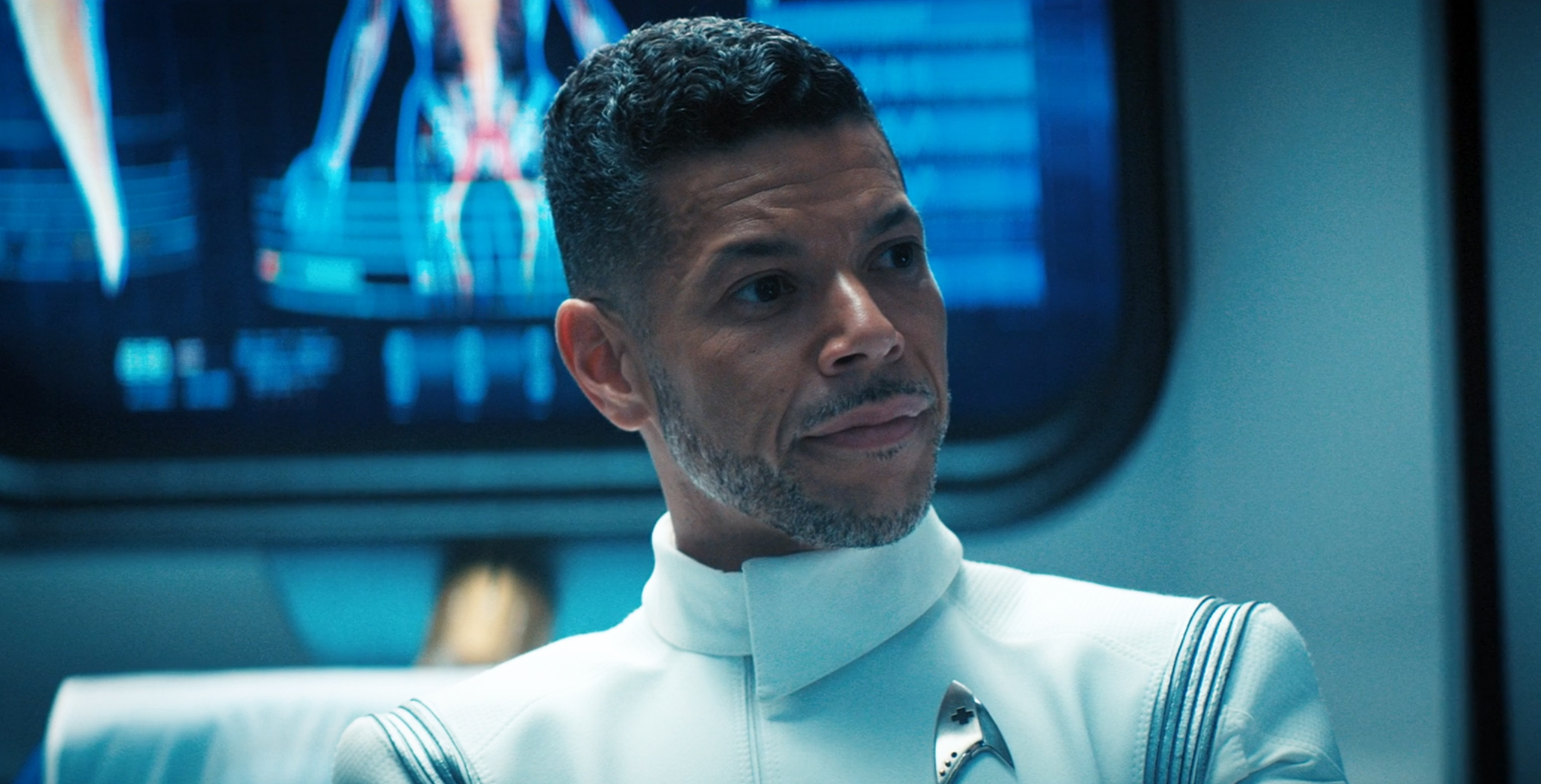
There’s never been a better time to be a Star Trek fan, with so many new and ongoing stories that center a truly diverse mix of faces and voices, in the way that would make Starfleet proud. And it means that these new shows are often better starting points in a way other franchises aren’t – it’s hard to argue against watching the early Star Wars or Lord of the Rings movies before their modern counterparts in TV and film, for instance.
But the likes of Discovery and Lower Decks deliver on the early vision of Star Trek in a way the original shows don’t – while looking back with a sly, funny kindness that moves forward while paying tribute to the past.
Whether you're looking to watch modern or classic Trek, our Star Trek streaming guide will help you find the best places to watch online. For more great Trekkie content, you can also check out our articles on the Star Trek movies, ranked and guide to watching the Star Trek movies in order.
Henry St Leger is a news writer, commissioning editor and all-round geek for the worlds of technology and entertainment. He has years of experience in gadget reviews, has been interviewed live on both BBC World News and Channel News Asia, and will talk endlessly about Neon Genesis Evangelion to anyone who will listen. Bylines include TechRadar, Edge, Space.com, Digital Camera World, and Little White Lies.

